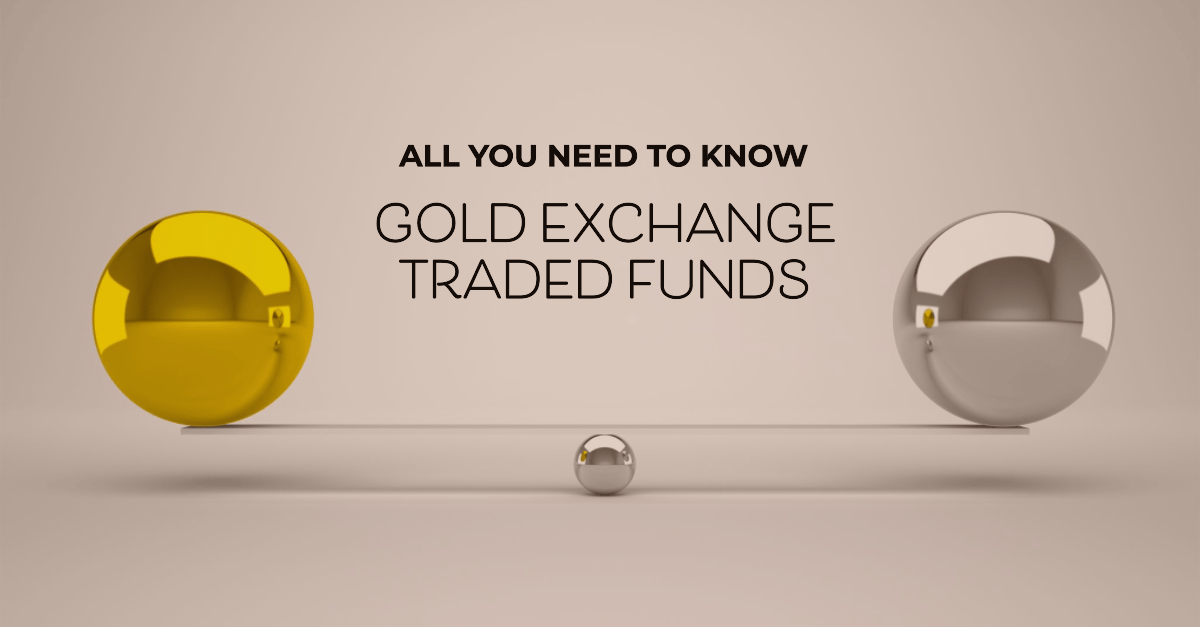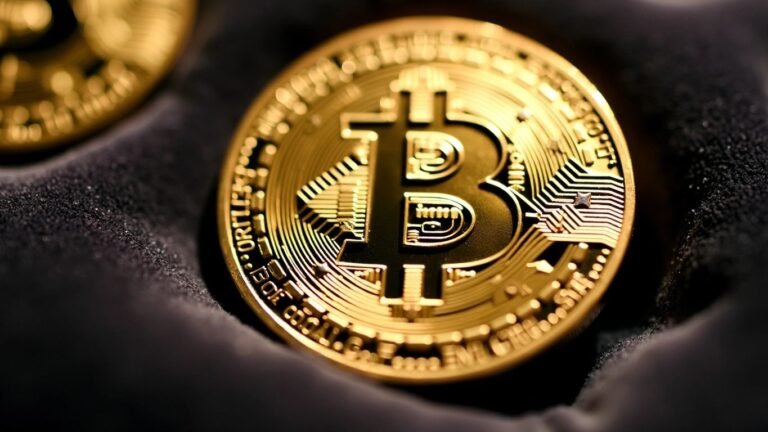Are you looking to invest in gold but don’t want to deal with the hassle of physical ownership?
Enter ETF Gold, a Gold Exchange Traded Fund that allows investors to gain exposure to the precious metal without having to store it or worry about security. But what exactly is ETF Gold and how can you benefit from it?
In this guide, we’ll explore the basics of investing in ETF Gold, its benefits compared to physical gold investments, and strategies for maximizing your returns.
We’ll also take a look at the current market trends and provide insights to help you make informed decisions.
So, whether you’re a seasoned investor or just starting out, read on to learn more about ETF Gold.
Key Takeaways
💰 ETF Gold is a Gold Exchange Traded Fund that allows investors to gain exposure to gold without physically owning it.
📊 Gold ETFs are traded on stock exchanges, offering greater liquidity and lower transaction costs compared to physical gold.
📈 The performance of Gold ETFs is tied to the price of gold, making them popular during market uncertainties.
🔄 Investment strategies for ETF Gold include long-term holding, dollar-cost averaging, and using it as a hedge against economic uncertainty.
🏅 Popular ETF Gold options in the market include iShares Gold Trust (IAU), SPDR Gold Shares (GLD), and Vanguard Gold ETF (GOLD).
Understanding Gold Exchange Traded Funds
Gold Exchange Traded Funds (ETFs) have become increasingly popular among investors looking to diversify their portfolios and invest in precious metals. But what exactly are Gold ETFs, and how do they work?
Gold ETFs are investments that track the price of gold, allowing investors to gain exposure to the precious metal without physically owning it. These ETFs are traded on stock exchanges, making them easily accessible to investors with a brokerage account.
One significant advantage of Gold ETFs is that they provide investors with a way to invest in gold without having to worry about storing or transporting the physical metal. This makes them a more affordable and practical investment option for those looking to add gold to their portfolio.
Comparing Gold ETFs to Physical Gold
While physical gold can also be a good investment option, Gold ETFs offer several advantages over owning the metal directly.
First, Gold ETFs are highly liquid and can be traded in real-time, making it easier for investors to buy and sell their shares based on market conditions. In contrast, buying and selling physical gold requires more time and effort, and may also involve additional costs such as shipping and storage fees.
Gold ETFs also offer investors greater diversification in their portfolio, allowing them to gain exposure to the precious metal without risking all their capital in a single investment. Additionally, Gold ETFs are subject to lower transaction costs compared to physical gold, making them a more cost-effective investment option.
Performance and Tax Implications
The performance of Gold ETFs is directly tied to the price of gold. As such, the performance of these ETFs is often closely watched by investors as an indicator of the health of the gold market. However, it is important to note that Gold ETFs may not always track the price of physical gold exactly due to factors such as tracking error and management fees.
Gold ETFs also have tax implications that investors should be aware of. Gains from the sale of Gold ETFs are generally taxed at the capital gains rate, which varies depending on the investor’s tax bracket and the length of time the investment was held before it was sold.
Tip: Before investing in Gold ETFs, it is important to consult with a financial advisor or tax professional to understand the tax implications and ensure the investment aligns with your overall financial goals and risk tolerance.
Benefits of Investing in ETF Gold
Investing in ETF Gold can provide numerous benefits to investors, making it an attractive option for diversifying their portfolios. Here are some of the main advantages:
- Diversification: ETF Gold can help investors diversify their portfolios by adding an asset class that has a low correlation with other investments, such as stocks and bonds. This can help reduce overall portfolio risk and volatility.
- Liquidity: As ETF Gold trades on major stock exchanges, it is highly liquid and can be easily bought and sold during trading hours, providing investors with flexibility.
- Cost-effectiveness: ETF Gold is a cost-effective way to invest in gold as it typically has lower fees than actively managed funds or physical gold investments.
- Ease of Trading: ETF Gold can be traded like a stock on major stock exchanges using a brokerage account, providing investors with convenient access to the gold market.
Overall, ETF Gold is an attractive investment option as it offers diversification, liquidity, cost-effectiveness, and ease of trading. Investors looking to add gold to their portfolios may consider ETF Gold as a viable option.
Comparing Different Gold ETFs
When it comes to choosing a Gold ETF, investors have a range of options to consider. Here, we compare some of the most popular Gold ETFs available in the market today.
| ETF Name | Ticker Symbol | Expense Ratio | Tracking Error | Fund Size (in Millions) |
|---|---|---|---|---|
| iShares Gold Trust | IAU | 0.25% | 0.15% | $27,524 |
| SPDR Gold Shares | GLD | 0.40% | 0.40% | $68,953 |
The iShares Gold Trust (IAU) is one of the most popular Gold ETFs available in the market. With an expense ratio of just 0.25%, it is also one of the most cost-effective options for investors. The ETF has a track record of closely tracking the spot price of gold and has a relatively low tracking error of just 0.15%.
The SPDR Gold Shares (GLD) is another popular option among Gold ETF investors. The fund has a higher expense ratio of 0.40% and a larger fund size of almost $69 billion. However, it has a higher tracking error of 0.40%.
Factors to Consider When Choosing a Gold ETF
When choosing a Gold ETF, investors should consider several factors. These include:
- Expense ratio
- Tracking error
- Fund size
- Investment objective
- Geographic exposure
Investors should also pay attention to the liquidity of the ETF and its underlying assets. Liquidity can vary depending on the size and trading volume of the ETF. In addition, investors should review the ETF’s performance history, including its tracking record and volatility, before making a decision.
Market Analysis of ETF Gold
ETF Gold has been a popular investment choice for many investors over the years due to its perceived stability and hedging capability against market volatility. However, it is essential to understand the factors that affect its performance and price movements.
One of the primary drivers of ETF Gold’s market performance is the global economic outlook. When there are uncertainties or instability in the financial markets, investors often turn to gold as a safe haven. This increased demand for gold can lead to a rise in ETF Gold’s price.
The US dollar’s value also has a significant impact on gold prices, as gold is typically priced in dollars. When the US dollar weakens, gold prices tend to go up, and vice versa. Therefore, investors should keep an eye on the US dollar’s value when analyzing ETF Gold’s performance.
ETF Gold Performance in 2021
As of October 2021, ETF Gold has experienced a volatile year, with its performance highly influenced by the COVID-19 pandemic’s impact on the economy. In the early months of 2021, the gold market experienced an upward trend, driven by inflation concerns due to a weakened US dollar. However, in the months that followed, gold prices experienced a decline due to a strengthening US economy and decreasing inflation rates.
Despite the recent fluctuations, ETF Gold continues to offer investors a safe haven against market volatility. With the ever-present uncertainty of global economic outlook, ETF Gold remains an attractive investment option for those seeking stability in their portfolio.
Investment Strategies for ETF Gold
Investing in ETF Gold can provide a range of benefits, but it’s important to have a strategy in place to maximize potential returns. Here are some investment strategies you should consider:
Long-Term Holding
One popular strategy for investing in ETF Gold is to take a long-term approach. This involves buying and holding the ETF for several years, with the goal of achieving capital appreciation over time.
By taking a long-term approach, investors can weather short-term market volatility and take advantage of the potential for gold’s long-term price appreciation. This strategy is particularly appealing for investors who believe that inflation or other economic factors will drive up the price of gold over the long term.
Dollar-Cost Averaging
Dollar-cost averaging is a popular investment strategy that involves investing a fixed amount of money at regular intervals, regardless of the asset’s price. This strategy helps to reduce the impact of market volatility and can result in a lower average cost per share over time.
For ETF Gold, dollar-cost averaging can be an effective way to build a position in the asset over time. By investing a fixed amount each month, quarter, or year, investors can gradually accumulate shares of the ETF without worrying about timing the market.
Hedging Strategies
Some investors use ETF Gold as a hedge against inflation or economic uncertainty. In this case, the ETF is used as a way to balance out the risk in a larger portfolio of investments.
For example, an investor might hold a mix of stocks, bonds, and ETF Gold in their portfolio. If the stock market experiences a downturn, the value of the ETF Gold holdings might increase, providing a cushion against losses in other parts of the portfolio.
Other hedging strategies might involve using options or futures contracts to offset potential losses in the ETF if gold prices fall.
Ultimately, the right investment strategy for ETF Gold will depend on your individual goals, risk tolerance, and investment timeline. By understanding the different options available and developing a sound investment plan, you can build a strong portfolio that includes this valuable asset.
How to Buy ETF Gold
Investing in ETF Gold is a straightforward process that can be done through a brokerage account. Follow these steps to buy ETF Gold:
- Open a brokerage account: Choose a reputable brokerage firm that offers access to ETF Gold. You will need to provide personal information and complete the account setup process.
- Choose the right ETF: Research different ETF Gold options and choose the one that aligns with your investment objectives. Consider factors such as expense ratios, tracking error, and fund size.
- Place buy orders: Once you have selected your ETF, place a buy order through your brokerage account. Choose the appropriate number of shares you wish to purchase and submit the order.
- Monitor your investment: Track the performance of your ETF Gold investment regularly. Review the market trends and any news that may impact your investment.
Buying ETF Gold is a low-cost and convenient way to invest in gold. However, make sure to conduct thorough research and choose the right ETF that aligns with your investment objectives and risk tolerance.
Best ETF Gold Options in the Market
Investing in ETF Gold is a popular choice for many investors seeking exposure to the precious metal. As such, there are several ETF Gold options available in the market. Here are some of the best options to consider:
| ETF Name | Expense Ratio | AUM (Assets Under Management) | Performance (YTD) |
|---|---|---|---|
| iShares Gold Trust (IAU) | 0.25% | $25.32 billion | 3.23% |
| SPDR Gold Shares (GLD) | 0.40% | $62.21 billion | 3.29% |
| Vanguard Gold ETF (GOLD) | 0.17% | $19.89 billion | 3.57% |
iShares Gold Trust (IAU) is a popular ETF Gold option, with a low expense ratio of 0.25% and over $25 billion in assets under management. SPDR Gold Shares (GLD) is another widely traded fund, with over $62 billion in assets and a slightly higher expense ratio of 0.40%. Vanguard Gold ETF (GOLD) is a newer entrant to the market, but has quickly gained popularity due to its low expense ratio of 0.17% and strong performance.
It’s important to note that each ETF has its own unique characteristics, and investors should consider their individual investment goals and risk tolerance when selecting a fund.
Latest News and Updates on ETF Gold
Investing in ETF Gold has become increasingly popular in recent years. The value of Gold Exchange Traded Funds has been on the rise, and investors are taking notice. Here are some of the latest news and updates on ETF Gold:
“The demand for ETF Gold has risen significantly, as investors seek a safe haven amid market volatility. In the first quarter of 2021, global ETF Gold holdings increased by 6%, reaching a record high of 3,765 tonnes.”
– World Gold Council
This data shows that investors are turning to ETF Gold as a hedge against inflation and uncertainty in the financial markets. With interest rates remaining low and economic recovery uncertain, the appeal of investing in ETF Gold continues to grow.
Another development in the ETF Gold market is the launch of new products. For example, there is now an ETF Gold fund that invests solely in responsibly sourced gold from small-scale miners. This offers investors a way to support sustainable mining practices and make a positive social impact.
It is important for investors to stay up-to-date with the latest news and trends in the ETF Gold market. By doing so, they can make informed decisions and maximize their potential returns.
FAQ about ETF Gold
In this section, we will address some common questions about ETF Gold to help investors make informed decisions.
Q: What is ETF Gold?
ETF Gold is a type of Exchange Traded Fund (ETF) that invests in physical gold bullion. It allows investors to gain exposure to gold without owning the physical asset.
Q: Is investing in ETF Gold risky?
Like any investment, there are risks associated with investing in ETF Gold. The value of gold can be volatile, and investors should be prepared to ride out fluctuations in the market.
Q: How are ETF Gold prices determined?
The price of ETF Gold is determined by the market value of its underlying assets, which is the physical gold held by the fund. This value is calculated based on the current market price of gold.
Q: Are there tax implications when investing in ETF Gold?
Yes, there can be tax implications when investing in ETF Gold. Investors should consult with a tax professional to determine the tax consequences of their investment.
Q: Can I redeem my ETF Gold shares for physical gold?
ETF Gold shares can be redeemed for physical gold, but only by authorized participants. Investors cannot redeem their shares for physical gold.
Q: What are the advantages of investing in ETF Gold compared to physical gold?
Investing in ETF Gold offers advantages such as ease of trading, lower costs, and diversification benefits. Physical gold can be costly to store and purchase, and it may not be as liquid as an ETF.
Q: How do I choose the right ETF Gold option for me?
When choosing an ETF Gold option, investors should consider factors such as expense ratios, fund size, liquidity, and tracking error. It’s also important to do research on the fund’s historical performance and management team.
Q: What are some common investment strategies for ETF Gold?
Common investment strategies for ETF Gold include long-term holding, dollar-cost averaging, and hedging strategies. Investors should consult with a financial advisor to determine the best strategy for their individual goals and risk tolerance.
Resources and External Links
Here are some additional resources and external links that can help you understand ETF Gold:
Articles
- 4 Best Gold ETFs for July 2023 – NerdWallet
- Top Gold ETFs for 2023 – Investopedia
- 7 Best Gold ETFs for Rising Interest Rates in 2023 – U.S. News
- Gold ETF List – ETF Database
- Best gold ETFs of 2023 – USA TODAY
YouTube Videos
- Here’s how to play gold using ETFs – CNBC Television
- The 7 Best Gold ETFs for 2023 (GLD, IAU, & more) – Optimized Portfolio
- What Are The Best Gold ETFs To Invest In? (TOP 4)🧈💰 – The Right Trader
These resources provide additional information and insights about ETF Gold.
Disclaimer
The information provided on this website and any related content is for informational purposes only and should not be considered as financial advice. It is not intended to substitute professional financial advice, nor does it constitute a recommendation to buy, sell, or invest in any financial product or asset.
All investment decisions and actions taken by individuals based on the information provided are at their own risk. Before making any financial decisions, individuals should consult with a qualified financial advisor or professional to assess their unique financial situation, risk tolerance, and investment goals.








